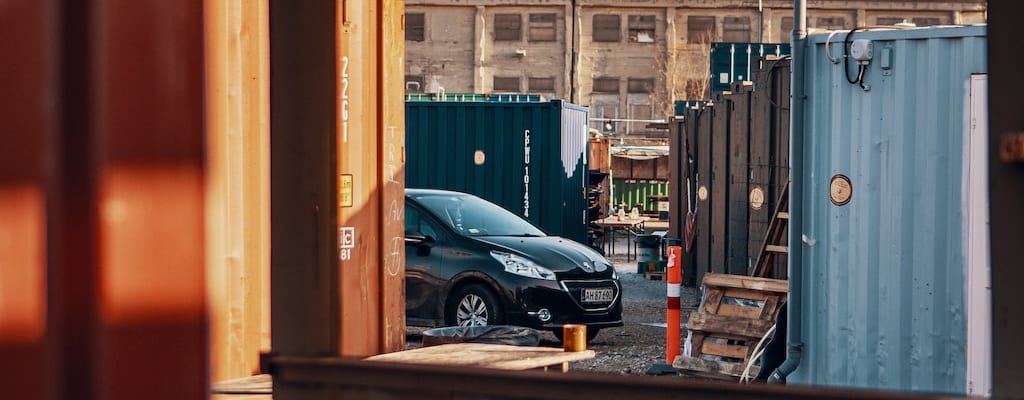in the worst way: Idiom Meaning and Origin
What does ‘in the worst way’ mean?
The idiom "in the worst way" means to do something with utmost intensity or in the most extreme manner, often implying a negative or undesirable outcome.

Idiom Explorer
The idiom "worst comes to worst" means in the worst case scenario or in the most extreme situation possible.
The idiom "in the wrong place at the wrong time" means being in a situation where something bad happens due to unfortunate timing or circumstances.
The idiom "in the way" means obstructing or blocking the progress or movement of someone or something.
The idiom "in the toilet" means that something is in a troubled or bad state, typically referring to a situation that has gone wrong or is failing. It is a casual expression that implies a negative outcome or result.
The idiom "in the least" is used to emphasize that something is not at all or in any way. It is often used to express a strong negative sentiment or to emphasize a lack of expectation or possibility.
The idiom "in one's wildest dreams" means beyond one's imagination or expectations, referring to something that is highly unlikely or unrealistic.
The idiom "in any way, shape, or form" means absolutely no exceptions or possibilities. It emphasizes the complete absence of options or alternatives in a situation or action.
The idiom "in a big way" means to do something on a large scale, with great intensity or significance.
The idiom "in a big way" is commonly used in the English language to convey the idea of doing something to a great extent or with a lot of enthusiasm. It emphasizes the magnitude, intensity, or significance of an action, event, or behavior.
The idiom "go wrong" means that something does not go as planned or expected, and results in a failure or a mistake.
The idiom "go down the wrong way" means to do or say something that is inappropriate, offensive or causes discomfort to others.
The idiom "go down the wrong way" is a common English expression used to describe the uncomfortable or unpleasant swallowing of something. It is often used metaphorically to convey discomfort in various situations, not just when ingesting food or drink.
The Unexpected Intensity
The idiom "in the worst way" is a commonly used phrase in the English language. It conveys a strong intensity or extent of an action or feeling. When someone says "in the worst way," they are emphasizing their desire or intention to do something with utmost effort. This expression is versatile and can be used in a wide range of contexts.
The phrase "in the worst way" has its origins in the early 19th century. It is believed to have evolved from the older idiom "to want something bad" or "to want something badly," which also conveys a strong desire or urge. Over time, the expression transformed into "in the worst way" to add emphasis to the intensity of the wanting or intending.
One of the key features of this idiom is its versatility and applicability in different situations. It can be used to express a strong longing or desire for something or to emphasize the determination or eagerness to achieve a goal. For example, someone might say, "I want to learn to play the piano in the worst way," to convey their intense enthusiasm and dedication towards achieving that goal.
The idiom "in the worst way" is often used informally in everyday speech and writing. It is commonly used in colloquial conversations and can be found in various forms of media, including literature, movies, and music. Its widespread usage demonstrates its familiarity and acceptance in the English language.
The related idiom "worst comes to worst" is often used interchangeably with "in the worst way" to convey a sense of preparing for the worst possible outcome. It is used to emphasize the importance of considering and planning for the worst-case scenario. For example, someone might say, "I have prepared for this presentation in the worst way. I have rehearsed multiple times and created backup slides in case anything goes wrong." In this context, the idiom enhances the speaker's readiness and commitment to dealing with any unforeseen difficulties.
Another related idiom is "in a big way," which is used to describe the magnitude or extent of an action or event. When someone does something "in a big way," they do it on a large scale or with great significance. This idiom emphasizes the importance or impact of the action or event. For example, someone might say, "I want to celebrate my birthday in a big way by throwing a huge party." In this context, the idiom enhances the speaker's desire to make their birthday celebration memorable and significant.
The phrase "in the least" is often used interchangeably with "in the worst way" to express a strong sense of dissatisfaction or disappointment. When someone says they don't want something "in the least," they are emphasizing that they absolutely do not want it or have any interest in it. For example, someone might say, "I don't want to go to that party in the least. I have no desire to be around those people." In this context, the idiom enhances the speaker's negative sentiment towards the party and underscores their lack of interest or willingness to attend.
Another related idiom is "in any way, shape, or form." This phrase is used to emphasize that something is absolutely not possible or acceptable under any circumstances. When someone says something cannot happen "in any way, shape, or form," they are asserting its total impossibility. For example, someone might say, "I will not tolerate cheating on this test in any way, shape, or form. It is completely unacceptable." In this context, the idiom emphasizes the speaker's uncompromising stance against cheating, leaving no room for any form of leniency or acceptance.
The idiom "go down the wrong way" is used to describe a reaction or response that is entirely opposite or contrary to what was expected or intended. When something "goes down the wrong way," it does not align with the desired outcome or expectation. For example, someone might say, "His comments about my work went down the wrong way. I was hoping for constructive feedback, but his criticism was harsh and demoralizing." In this context, the idiom underscores the speaker's disappointment and frustration with the unexpected negative response to their work.
The idiom "in the worst way" is a widely recognized expression used to emphasize a strong desire, intention, or effort towards something. Its origins can be traced back to the 19th century, and it has since become a common and versatile phrase in the English language. While its meaning is generally understood, its interpretation can vary based on context and individual perception, adding a layer of complexity to its usage. The related idioms "worst comes to worst," "in a big way," "in the least," "in any way, shape, or form," and "go down the wrong way" further enhance the idiomatic richness of the English language.
Example usage
Examples of how the idiom *in the worst way* can be used in a sentence:
- I want to win this competition in the worst way.
- She wanted to tell him how she felt in the worst way, but she couldn't find the right words.
- He needed a job in the worst way to pay off his debts.
More "Intensity" idioms

